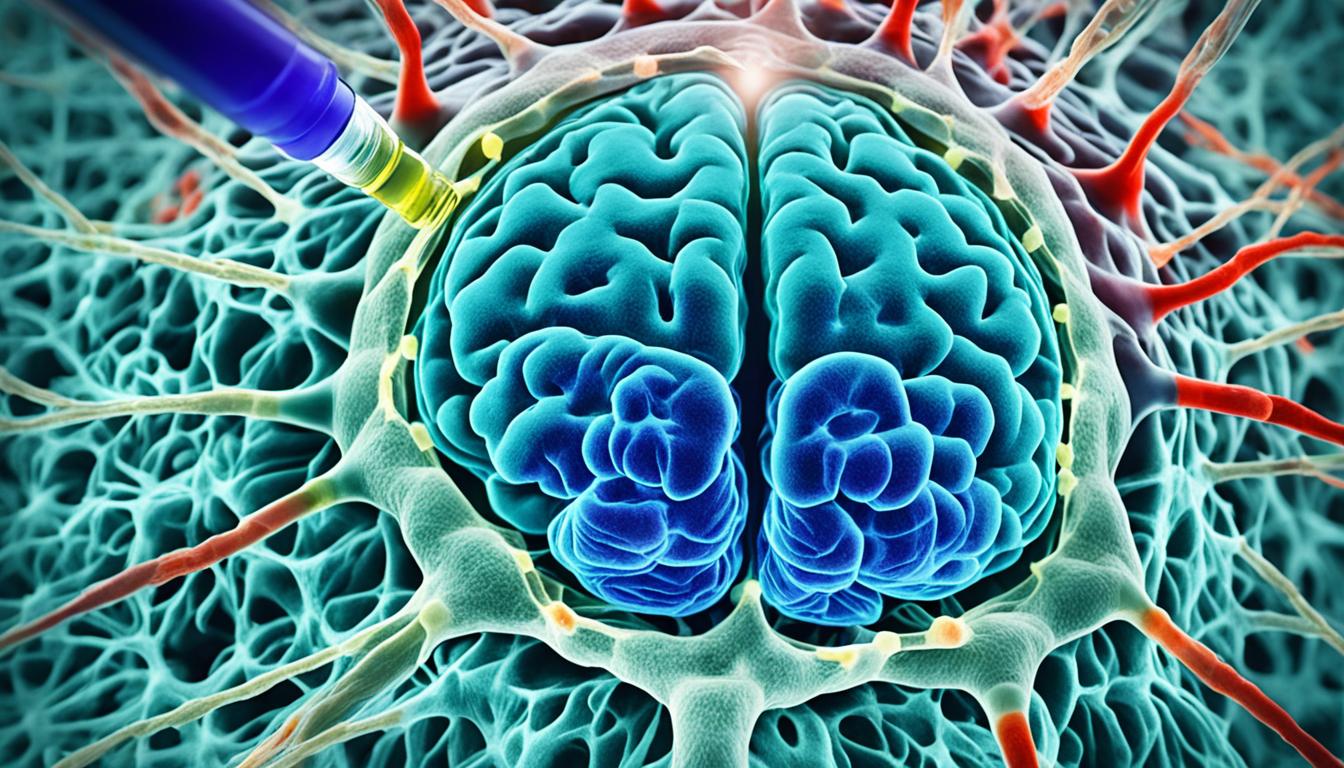Obsessive-compulsive disorder, or OCD, is a common mental illness worldwide. It causes intrusive thoughts and a need for specific actions to reduce anxiety. This illness can really affect someone’s life, from work to relationships.
OCD shows up differently in each person. Some might worry about getting dirty, others may fear something terrible happening if things aren’t just right. People often feel stressed because they have to keep repeating certain tasks.
The reasons behind OCD are still a bit of a mystery. But it’s likely a mix of things like genes and life experiences. If someone in your family has OCD, you might be more likely to get it too. Childhood trauma can also play a role.
Getting an OCD diagnosis means describing your symptoms to a professional. They use special tests to see how severe your OCD is. The main focus is on how much it affects your daily life.
For now, there isn’t a complete cure for OCD. But experts are looking into new treatments. Stem cell therapy is one innovative approach that shows some promise. It aims to use stem cells to fix parts of the brain that aren’t working right. Early tests look hopeful, suggesting it could help people with OCD live better.
Key Takeaways:
- OCD is a mental disorder characterized by obsessions and compulsions.
- Common obsessions include fear of contamination and intrusive thoughts.
- Compulsions often involve repetitive behaviors like cleaning or checking.
- Genetic and environmental factors contribute to the development of OCD.
- Diagnosis of OCD involves a comprehensive evaluation of symptoms.
- Stem cell therapy shows promise as a potential treatment for OCD.
Symptoms of OCD
Obsessive-compulsive disorder (OCD) shows in many ways, with people having intrusive thoughts, images, or urges. They feel these are obsessions. They also feel they must do certain tasks over and over, known as compulsions. This can make life hard and cause much worry.
Often, those with OCD are afraid of getting dirty or making things dirty for others. They worry things aren’t just right, have thoughts they don’t want, or fear causing harm. These anxieties push them to act in ways they hope will calm their fears.
People might wash their hands a lot, clean excessively, check things repetitively, count carefully, or make sure things are just so. They do these actions in a set way, and can’t seem to stop.
This cycle of obsessions and compulsions can really hold someone back. It affects how well they do at work or school and how they get along with others.
| Obsessions | Compulsions |
|---|---|
| Fear of contamination | Excessive hand-washing |
| Concerns about symmetry or order | Cleaning, arranging objects |
| Forbidden or upsetting thoughts | Checking |
| Fear of causing harm to oneself or others | Counting |
If you or someone you know has these signs, it’s best to get help. There are good treatments for OCD. Therapy and medicine can make a big difference in how someone feels and lives.
Causes and Diagnosis of OCD
Obsessive-compulsive disorder (OCD) is a challenging mental health condition. It can significantly affect a person’s life. The exact causes of OCD are not fully clear. But, researchers think both family history and the environment are involved.
Genetic Factors
If someone in your family has had OCD, you might be at a higher risk. This shows genetics can influence OCD. Certain genes may lead to OCD by affecting how the brain handles obsessive thoughts and actions.
But remember, a family link to OCD doesn’t mean you will get it. There are many factors at play besides genetics.
Environmental Factors
Outside elements can also impact OCD. Things like childhood abuse, trauma, and ongoing stress might trigger OCD symptoms.
A certain type of OCD, called PANDAS, could be linked to infections like streptococcal infections in childhood.
Having these experiences doesn’t guarantee you’ll get OCD. They can, however, raise the risk for those with a genetic inclination.
OCD Diagnosis
Doctors diagnose OCD by looking at how the symptoms affect daily life. They use a guide called the DSM-5. This manual sets rules for identifying mental disorders.
The Y-BOCS tool helps measure the seriousness of OCD symptoms. It uses interviews and scales to assess obsessions and compulsions.
If you think you or someone you know has OCD, seek help. A professional can provide a diagnosis and recommend a treatment plan.
Stem Cell Therapy for OCD and Conclusion
Obsessive-compulsive disorder (OCD) doesn’t have a cure yet. But, there’s hope in new treatments like stem cell therapy. This approach uses stem cells to fix or replace damaged brain cells. It brings new chances for people with OCD.
Stem cell therapy is new for OCD, but early tests are encouraging. They show it could lessen symptoms and improve life for those with OCD. This new method might change the way we fight OCD, making treatments better in the future.
Research in stem cell therapy is moving fast. Scientists want to tackle OCD’s root causes using stem cells. If they succeed, it could mean new, more effective ways to help people with OCD. The future of stem cell research in OCD treatment is full of promise. We should keep an eye on it.

